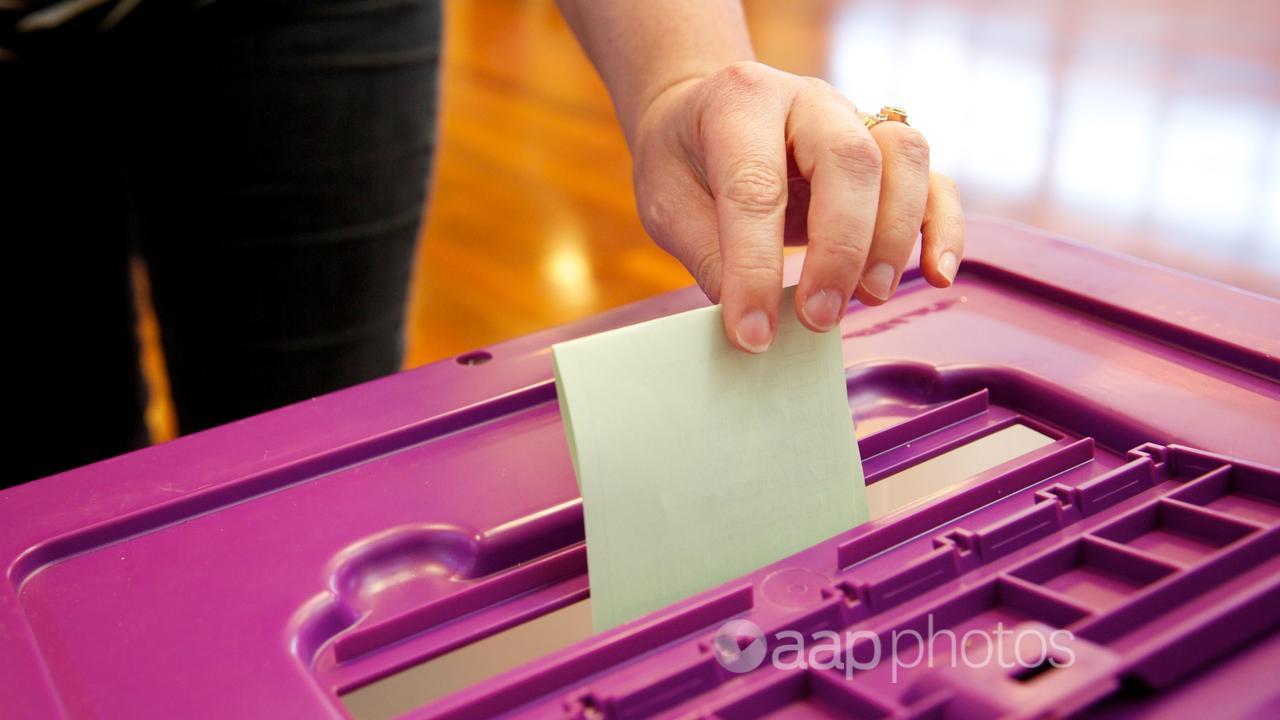A Facebook post claims the proposed Aboriginal and Torres Strait Islander Voice to Parliament previously failed at the 1999 referendum.
This is false. The 1999 referendum sought to alter the Australian Constitution to allow the establishment of a republic, replacing the British monarch as head of state, and to add a preamble “honouring” Indigenous people as the “nation’s first people”.
Experts told AAP FactCheck neither of the proposed alterations to the constitution involved a voice to parliament.
The concept of an Indigenous voice was not formed until almost two decades later in May 2017, through the Uluru Statement From The Heart.

The claim was made in a post (screenshot here) on August 20.
“Did you know that the ‘Voice to parliament’ failed in the 1999 referendum,” it states.
The proposed preamble wording (page 32) included “honouring Aborigines and Torres Strait Islanders, the nation’s first people, for their deep kinship with their lands and for their ancient and continuing cultures which enrich the life of our country”.
Then-prime minister John Howard wrote the preamble’s first draft (page 6) with poet Les Murray. It was slightly amended before the referendum in November 1999.

Frank Bongiorno, a history professor at the Australian National University, said the 1999 referendum had no relation to a voice to parliament.
John Warhurst, a political science professor at ANU agreed, labelled the claim “clearly false”.
“The two 1999 referendums were about the republic and the preamble,” Emeritus Professor Warhurst said. “It is absolutely clear.”
Mark McKenna, a history professor at The University of Sydney, said the claim was “demonstrably false”.
“The voice to parliament was not put to the people in the 1999 referendum,” Professor McKenna told AAP FactCheck.
“The idea of the voice to parliament did not exist at the time, and did not emerge until 2017.
“The proposed preamble did not recommend or include an Indigenous voice to parliament.”

Benjamin Jones, a history lecturer at Central Queensland University, said the preamble and the proposed voice are very different.
“Nothing even remotely similar to the First Nations voice to parliament has ever been taken to a referendum,” Dr Jones told AAP FactCheck.
“If (the 1999 preamble question) passed, there would have been symbolic recognition of First Nations in the constitution.
“This is a completely different proposal to the voice which would create a First Nation body to offer advice to the executive government on matters relating to Aboriginal and Torres Strait Islander peoples.”
The Verdict
The claim the Indigenous voice was rejected at the 1999 referendum is false.
History and political experts told AAP FactCheck the referendum made no mention of a voice to parliament, which did not emerge until 2017 through the Uluru Statement From The Heart.
The referendum in 1999 asked two questions on whether to become a republic and include a preamble to the constitution honouring Indigenous people.
False – The claim is inaccurate.
AAP FactCheck is an accredited member of the International Fact-Checking Network. To keep up with our latest fact checks, follow us on Facebook, Twitter and Instagram.
All information, text and images included on the AAP Websites is for personal use only and may not be re-written, copied, re-sold or re-distributed, framed, linked, shared onto social media or otherwise used whether for compensation of any kind or not, unless you have the prior written permission of AAP. For more information, please refer to our standard terms and conditions.


















